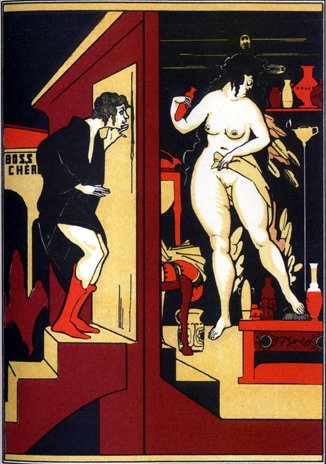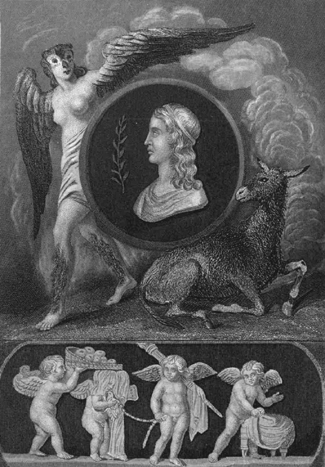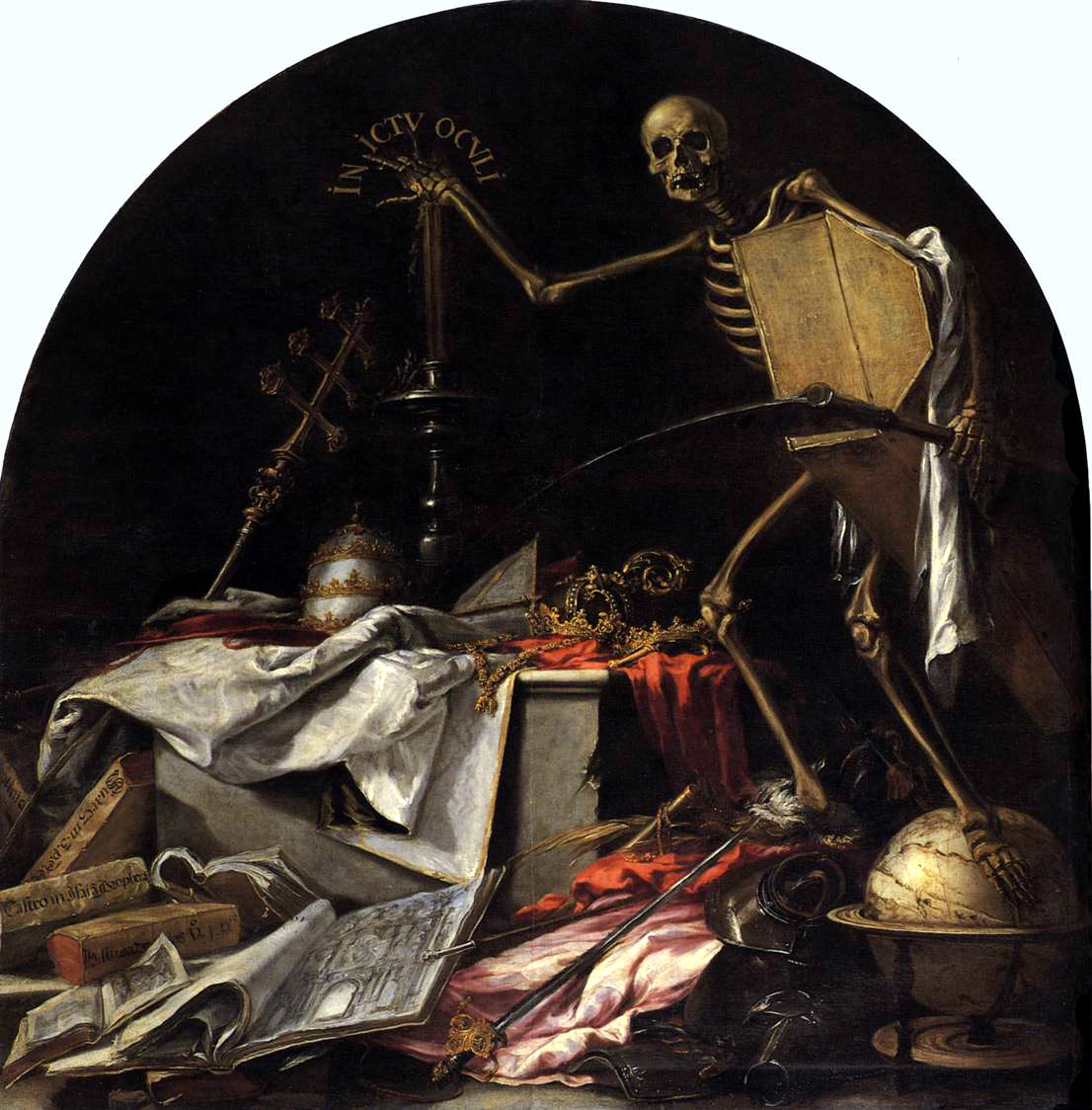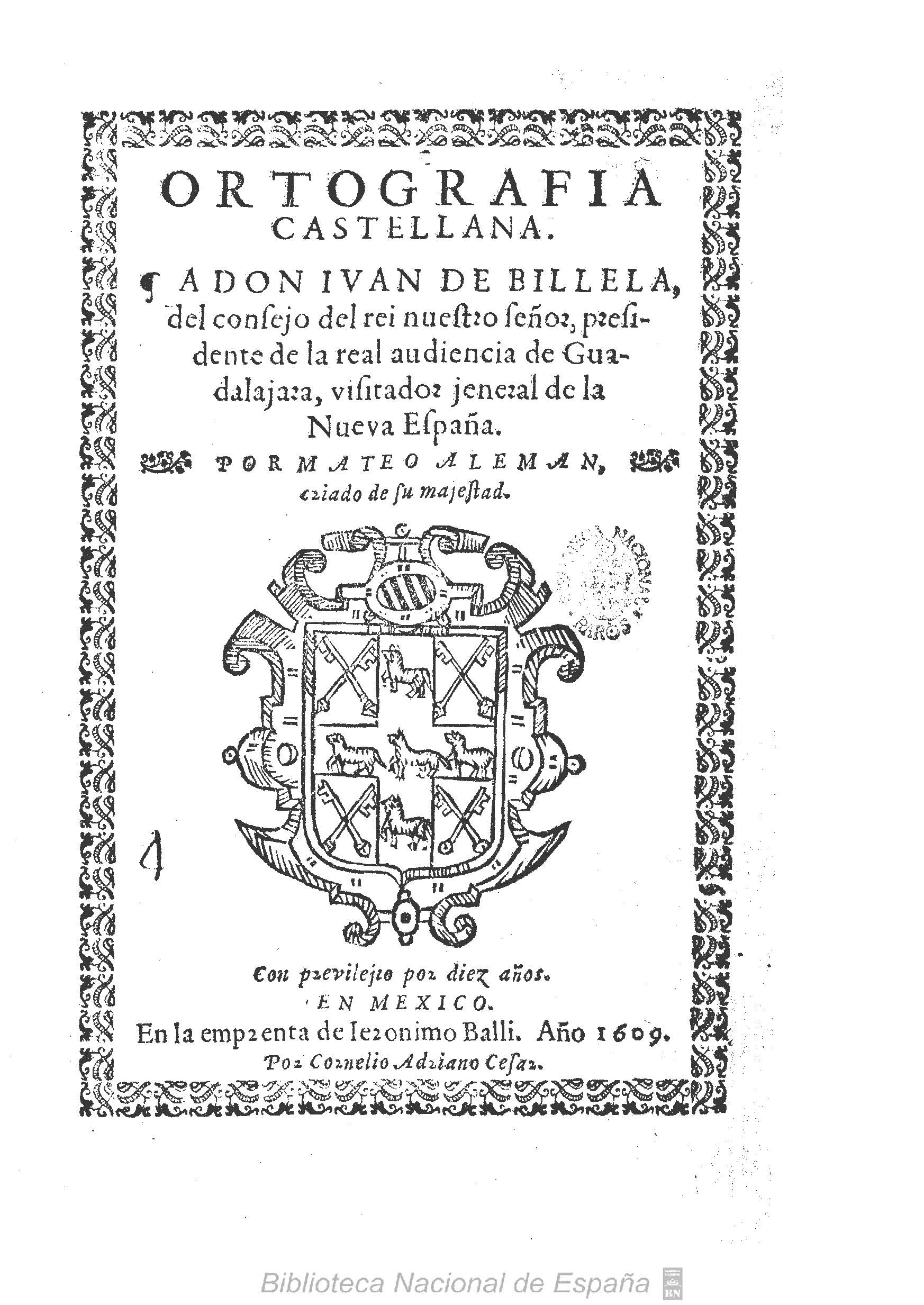|
Picaresque
The picaresque novel (Spanish: ''picaresca'', from ''pícaro'', for " rogue" or "rascal") is a genre of prose fiction. It depicts the adventures of a roguish, but "appealing hero", usually of low social class, who lives by his wits in a corrupt society. Picaresque novels typically adopt a realistic style. There are often some elements of comedy and satire. While the term "picaresque novel" was only coined in 1810, the picaresque novel originated in Imperial Rome during the 1st-2nd century CE, in particular with works such as the Satyricon of Petronius and later, and more particularly with authors such as Apuleius in Roman Numidia. It would see a revival in Spain during the Spanish Golden Age in 1554. Early Spanish contributors included Mateo Alemán and Francisco de Quevedo, who were influenced in particular by Apuleius' 2nd century work. Other notable ancient influences of the modern picaresque genre include Roman playwrights such as Plautus and Terence. The Golden Ass of Apu ... [...More Info...] [...Related Items...] OR: [Wikipedia] [Google] [Baidu] |
Lazarillo De Tormes
''The Life of Lazarillo de Tormes and of His Fortunes and Adversities'' ( es, La vida de Lazarillo de Tormes y de sus fortunas y adversidades ) is a Spanish novella, published anonymously because of its anticlerical content. It was published simultaneously in three cities in 1554: Alcalá de Henares, Burgos and Antwerp. The Alcalá de Henares edition adds some episodes which were most likely written by a second author. It is most famous as the book establishing the style of the picaresque satirical novel. Summary Lázaro is a boy of humble origins from Salamanca. After his stepfather is accused of thievery, his mother asks a wily blind beggar to take on Lazarillo (little Lázaro) as his apprentice. Lázaro develops his cunning while serving the blind beggar and several other masters, while also learning to take on his father's practice. Table of contents: *Prologue *Chapter* 1: childhood and apprenticeship to a blind man. *Chapter* 2: serving a priest. *Chapter* 3: serving a ... [...More Info...] [...Related Items...] OR: [Wikipedia] [Google] [Baidu] |
The Golden Ass
The ''Metamorphoses'' of Apuleius, which Augustine of Hippo referred to as ''The Golden Ass'' (''Asinus aureus''), is the only ancient Roman novel in Latin to survive in its entirety. The protagonist of the novel is Lucius. At the end of the novel, he is revealed to be from Madaurus, the hometown of Apuleius himself. The plot revolves around the protagonist's curiosity (''curiositas'') and insatiable desire to see and practice magic. While trying to perform a spell to transform into a bird, he is accidentally transformed into an ass. This leads to a long journey, literal and metaphorical, filled with inset tales. He finally finds salvation through the intervention of the goddess Isis, whose cult he joins. Origin The date of composition of the ''Metamorphoses'' is uncertain. It has variously been considered by scholars as a youthful work preceding Apuleius' ''Apology'' of 158–159, or as the climax of his literary career, and perhaps as late as the 170s or 180s. Apuleius adap ... [...More Info...] [...Related Items...] OR: [Wikipedia] [Google] [Baidu] |
Guzmán De Alfarache
''Guzmán de Alfarache'' () is a picaresque novel written by Mateo Alemán and published in two parts: the first in Madrid in 1599 with the title , and the second in 1604, titled '. The works tells the first person adventures of a ''picaro'', a young street urchin, as he matures into adulthood. It thus ultimately both recounts adventures and moralizes on those childish excesses. ''Guzmán de Alfarache'', by this means, is conceived as an extensive doctrinal sermon about the sins of society, and was so received by the author's contemporaries, despite the hybrid qualities between an engaging novel and a moralizing discourse. The novel was highly popular in its time. Many editions were published, not only in Spanish, but in French, German, English, Italian, and Latin. The English translation, by James Mabbe, was published in 1622, under alternative titles ''The Rogue'' and ''The Life of Guzman de Alfarache''. Apocryphal sequels and imitations were also soon produced, being that of ... [...More Info...] [...Related Items...] OR: [Wikipedia] [Google] [Baidu] |
Don Quixote
is a Spanish epic novel by Miguel de Cervantes. Originally published in two parts, in 1605 and 1615, its full title is ''The Ingenious Gentleman Don Quixote of La Mancha'' or, in Spanish, (changing in Part 2 to ). A founding work of Western literature, it is often labelled as the first modern novel and one of the greatest works ever written. ''Don Quixote'' is also one of the most-translated books in the world. The plot revolves around the adventures of a member of the lowest nobility, an hidalgo from La Mancha named Alonso Quijano, who reads so many chivalric romances that he either loses or pretends to have lost his mind in order to become a knight-errant () to revive chivalry and serve his nation, under the name . He recruits a simple farmer, Sancho Panza, as his squire, who often employs a unique, earthy wit in dealing with Don Quixote's rhetorical monologues on knighthood, already considered old-fashioned at the time, and representing the most droll realism in contr ... [...More Info...] [...Related Items...] OR: [Wikipedia] [Google] [Baidu] |
Francisco De Quevedo
Francisco Gómez de Quevedo y Santibáñez Villegas, Knight of the Order of Santiago (; 14 September 1580 – 8 September 1645) was a Spanish nobleman, politician and writer of the Baroque era. Along with his lifelong rival, Luis de Góngora, Quevedo was one of the most prominent Spanish poets of the age. His style is characterized by what was called ''conceptismo''. This style existed in stark contrast to Góngora's ''culteranismo''. Biography Quevedo was born on 14 September 1580 in Madrid into a family of '' hidalgos'' from the village of Vejorís, located in the northern mountainous region of Cantabria. His family was descended from the Castilian nobility. Quevedo's father, Francisco Gómez de Quevedo, was secretary to Maria of Spain, daughter of emperor Charles V and wife of Maximilian II, Holy Roman Emperor, and his mother, Madrid-born María de Santibáñez, was lady-in-waiting to the queen. Quevedo matured surrounded by dignitaries and nobility at the royal court ... [...More Info...] [...Related Items...] OR: [Wikipedia] [Google] [Baidu] |
Apuleius Metamorphoses C
Apuleius (; also called Lucius Apuleius Madaurensis; c. 124 – after 170) was a Numidian Latin-language prose writer, Platonist philosopher and rhetorician. He lived in the Roman province of Numidia, in the Berber city of Madauros, modern-day M'Daourouch, Algeria. He studied Platonism in Athens, travelled to Italy, Asia Minor, and Egypt, and was an initiate in several cults or mysteries. The most famous incident in his life was when he was accused of using magic to gain the attentions (and fortune) of a wealthy widow. He declaimed and then distributed his own defense before the proconsul and a court of magistrates convened in Sabratha, near ancient Tripoli, Libya. This is known as the ''Apologia''. His most famous work is his bawdy picaresque novel the ''Metamorphoses'', otherwise known as ''The Golden Ass''. It is the only Latin novel that has survived in its entirety. It relates the adventures of its protagonist, Lucius, who experiments with magic and is accidentally turned ... [...More Info...] [...Related Items...] OR: [Wikipedia] [Google] [Baidu] |
Apuleius
Apuleius (; also called Lucius Apuleius Madaurensis; c. 124 – after 170) was a Numidian Latin-language prose writer, Platonist philosopher and rhetorician. He lived in the Roman province of Numidia, in the Berber city of Madauros, modern-day M'Daourouch, Algeria. He studied Platonism in Athens, travelled to Italy, Asia Minor, and Egypt, and was an initiate in several cults or mysteries. The most famous incident in his life was when he was accused of using magic to gain the attentions (and fortune) of a wealthy widow. He declaimed and then distributed his own defense before the proconsul and a court of magistrates convened in Sabratha, near ancient Tripoli, Libya. This is known as the ''Apologia''. His most famous work is his bawdy picaresque novel the ''Metamorphoses'', otherwise known as ''The Golden Ass''. It is the only Latin novel that has survived in its entirety. It relates the adventures of its protagonist, Lucius, who experiments with magic and is accidentally turned ... [...More Info...] [...Related Items...] OR: [Wikipedia] [Google] [Baidu] |
Spanish Golden Age
The Spanish Golden Age ( es, Siglo de Oro, links=no , "Golden Century") is a period of flourishing in arts and literature in Spain, coinciding with the political rise of the Spanish Empire under the Catholic Monarchs of Spain and the Spanish Habsburgs. The greatest patron of Spanish art and culture during this period was King Philip II (1556–1598), whose royal palace, El Escorial, invited the attention of some of Europe's greatest architects and painters such as El Greco, who infused Spanish art with foreign styles and helped create a uniquely Spanish style of painting. It is associated with the reigns of Isabella I, Ferdinand II, Charles V, Philip II, Philip III, and Philip IV, when Spain was one of the most powerful countries in the world. The start of the Golden Age can be placed in 1492, with the end of the ''Reconquista'', the voyages of Christopher Columbus to the New World, and the publication of Antonio de Nebrija's ''Grammar of the Castilian Language''. It ro ... [...More Info...] [...Related Items...] OR: [Wikipedia] [Google] [Baidu] |
Mateo Alemán
: ''Aleman is sometimes used to refer to German.'' Mateo Alemán y del Nero (September 15471615?) was a Spanish novelist and writer. Biography Alemán was born in Seville, Andalucía, where he graduated from the University in 1564. He later studied at Salamanca and Alcalá, and from 1571 to 1588 held a post in the treasury; in 1594 he was arrested on suspicion of malversation, but was speedily released. According to some authors, he was descended from Jews forcibly converted to Catholicism after 1492, and one of his forebears had been burned by the Inquisition for secretly continuing to practice Judaism. In 1599, he published the first part of ''Guzmán de Alfarache'', a celebrated picaresque novel which passed through no less than sixteen editions in five years; a spurious sequel was issued in 1602, but the authentic continuation did not appear until 1604. In 1571, Alemán married, unhappily, Catalina de Espinosa, and was constantly in money difficulties, being imprisoned ... [...More Info...] [...Related Items...] OR: [Wikipedia] [Google] [Baidu] |
Novel
A novel is a relatively long work of narrative fiction, typically written in prose and published as a book. The present English word for a long work of prose fiction derives from the for "new", "news", or "short story of something new", itself from the la, novella, a singular noun use of the neuter plural of ''novellus'', diminutive of ''novus'', meaning "new". Some novelists, including Nathaniel Hawthorne, Herman Melville, Ann Radcliffe, John Cowper Powys, preferred the term "romance" to describe their novels. According to Margaret Doody, the novel has "a continuous and comprehensive history of about two thousand years", with its origins in the Ancient Greek and Roman novel, in Chivalric romance, and in the tradition of the Italian renaissance novella.Margaret Anne Doody''The True Story of the Novel'' New Brunswick, NJ: Rutgers University Press, 1996, rept. 1997, p. 1. Retrieved 25 April 2014. The ancient romance form was revived by Romanticism, especially the histori ... [...More Info...] [...Related Items...] OR: [Wikipedia] [Google] [Baidu] |
First-person Narrative
A first-person narrative is a mode of storytelling in which a storyteller recounts events from their own point of view using the first person It may be narrated by a first-person protagonist (or other focal character), first-person re-teller, first-person witness, or first-person peripheral. A classic example of a first-person protagonist narrator is Charlotte Brontë's ''Jane Eyre'' (1847), in which the title character is also the narrator telling her own story, "I could not unlove him now, merely because I found that he had ceased to notice me". This device allows the audience to see the narrator's mind's eye view of the fictional universe, but it is limited to the narrator's experiences and awareness of the true state of affairs. In some stories, first-person narrators may relay dialogue with other characters or refer to information they heard from the other characters, in order to try to deliver a larger point of view. Other stories may switch the narrator to different cha ... [...More Info...] [...Related Items...] OR: [Wikipedia] [Google] [Baidu] |
Spanish Language
Spanish ( or , Castilian) is a Romance languages, Romance language of the Indo-European language family that evolved from colloquial Latin spoken on the Iberian peninsula. Today, it is a world language, global language with more than 500 million native speakers, mainly in the Americas and Spain. Spanish is the official language of List of countries where Spanish is an official language, 20 countries. It is the world's list of languages by number of native speakers, second-most spoken native language after Mandarin Chinese; the world's list of languages by total number of speakers, fourth-most spoken language overall after English language, English, Mandarin Chinese, and Hindustani language, Hindustani (Hindi-Urdu); and the world's most widely spoken Romance languages, Romance language. The largest population of native speakers is in Mexico. Spanish is part of the Iberian Romance languages, Ibero-Romance group of languages, which evolved from several dialects of Vulgar Latin in I ... [...More Info...] [...Related Items...] OR: [Wikipedia] [Google] [Baidu] |








